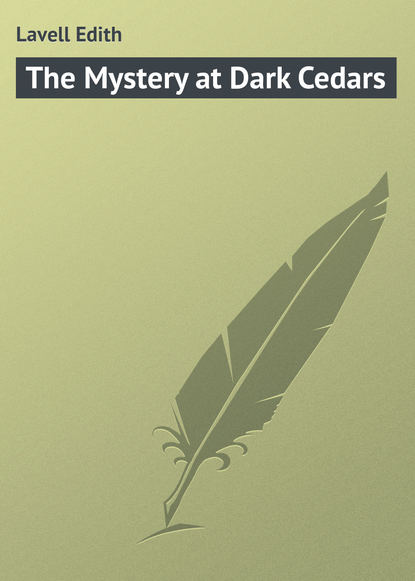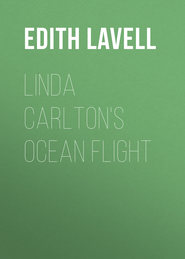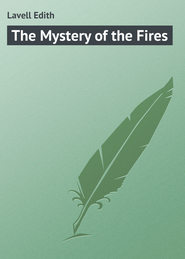По всем вопросам обращайтесь на: info@litportal.ru
(©) 2003-2024.
✖
The Mystery at Dark Cedars
Автор
Год написания книги
2017
Настройки чтения
Размер шрифта
Высота строк
Поля
“Then who did?” inquired John.
“I think I had better not say,” answered Mary Louise. “That’s over and done with. Your mother knows – if you want, you can ask her.”
John smiled. Mary Louise believed he had guessed the solution himself.
“You don’t really think Elsie would take the gold or the necklace, do you, Mr. Grant?” she asked anxiously. “Of course, you know her a lot better than I do.”
“I don’t know. She might argue that she had a right to some of that money. It wasn’t quite fair that Aunt Mattie got all of Grandfather’s fortune, and Elsie’s father didn’t get a penny… Yes, she might take it, while I don’t believe she would ever steal anything else.”
Mary Louise shuddered: it seemed as if she were the only person in the world who still considered Elsie innocent.
“There’s a colored family who live down the hill in back of Dark Cedars. Could they know about the necklace, Mr. Grant, do you suppose?”
“Abraham Lincoln Jones? Yes, they could have heard rumors about it – just as those gypsies did. But I happen to know that man, and I am sure he is thoroughly honest.”
“Would he steal chickens?”
“Not even chickens… Of course, his children might. Colored people love chicken, you know.”
“I’m going to get Elsie to take me to see them this afternoon.” Mary Louise rose from her chair. “I won’t take any more of your time, Mr. Grant – unless you can tell me what to do. I don’t like to go to the police without Miss Grant’s consent.”
“No, I wouldn’t do that. If there is something queer about her possession of the necklace, it would be better for her to lose it than to have an old disgrace exposed. At Aunt Mattie’s age, I mean. We better wait until she gets well.”
Mary Louise nodded: that was exactly her idea too. Unless, of course, one of the family had taken it – Corinne Pearson or Harry Grant.
“But I guess it would be all right to speak to Daddy in confidence about it,” she said, “and get his advice.”
“Your father?”
“Yes. He is Detective Gay, of the police force. You’ve heard of him?”
“Oh, yes, certainly. But tell him not to bring in the police – yet.”
Mary Louise held out her hand.
“Thank you so much, Mr. Grant, for giving me your time,” she said. “I’ll get in touch with you later.”
Well satisfied with her interview, she left the Grants’ porch and determined to do a little more investigating for herself before she consulted her father. A little farther down the street was the home of Bernice Tracey, an attractive young woman of about twenty-five, who had once been a lieutenant in Mary Louise’s Girl Scout troop. To this girl she decided to go for some information concerning Corinne Pearson, for she knew that Miss Tracey was a member of the Country Club set.
Miss Tracey herself answered Mary Louise’s ring at the door.
“Why, Mary Lou!” she exclaimed in surprise. “You are a stranger! And you almost caught me in bed, too! I just finished my breakfast. Come in – or shall I come out on the porch?”
“Oh, I can only stay a minute, Miss Tracey,” replied Mary Louise. “I just wanted to ask you a couple of questions, if you don’t mind… And please don’t think I’m crazy.”
“I know there never was a girl with a more level head on her shoulders!” answered the other admiringly. “Go ahead and ask me the questions, Mary Lou.”
“Well – er – you went to that dance last night, didn’t you, with the Country Club people? Was Corinne Pearson there?”
“Yes, she and Ned Mason ate supper with us. Why?”
“Please don’t ask me why! What time did the dance begin?”
“About eleven o’clock.”
Mary Louise frowned; it was possible, then, that Corinne could have been at Dark Cedars a little after ten.
“And – and – can you remember what Miss Pearson wore?”
“Yes. A white organdie. It was very simple, but awfully nice for a summer dance. I wish I had been as sensible.”
Now for the final question! Mary Louise had to summon all her courage to put forth this one.
“Do you remember what kind of jewelry she had on? What color?”
Miss Tracey’s face lighted up with a smile.
“I know why you’re asking me these questions, Mary Lou!” she exclaimed. “You’re a society reporter on the Star– aren’t you? But I don’t see why you don’t ask me what I wore. Aren’t I as pretty and as important as Corinne Pearson?”
“You’re twice as important and five times as pretty, Miss Tracey!” replied Mary Louise instantly. “But I’m not a reporter-or even trying to become one… I’ll explain some time later… Just tell me about the jewelry, if you can remember.”
“All right, my dear. Corinne wore red with her white dress. Imitation rubies, I suppose. Earrings and necklace and two bracelets.”
“Oh!” gasped Mary Louise. “That’s what I want to know. Thank you, Miss Tracey, thank you just heaps!”
Chapter XIV
Bad News
Mary Louise’s first impulse, upon leaving Miss Tracey’s home, was to rush right over to Corinne Pearson with a demand to see the necklace which she had worn at the dance the night before. But she had not taken more than a few steps before she saw the foolishness of such a proceeding. In the first place, Corinne would not be likely to show her the necklace; in the second place, Mary Louise could tell nothing by examining it. She wasn’t a connoisseur in rubies; it was doubtful whether she could spot a real stone if she saw one. No, nothing was to be gained by a visit to the Pearsons’ at this time.
So instead she directed her course towards home, resolving to discuss the whole affair with her father, if he had returned from his business trip, as her mother had expected.
She found him on the porch, reading the Sunday paper and smoking his pipe. He was a big man with a determined chin and fine dark eyes which lighted up with joy at the sight of his daughter.
“Mary Lou!” he exclaimed, getting up out of his chair and kissing her. “I was so afraid you wouldn’t be home to see me!”
“I just had to see you, Daddy,” returned the girl. “I need your help.”
“Sit down, dear. Your mother tells me that you are engaged in some serious business. I feel very proud of my detective daughter.”
“I’m afraid I’m not so good after all,” she replied sadly. “Now that I’m really up against a hard problem, I don’t know which way to turn. I’d like to tell you about it, if you have time.”
She seated herself in the hammock and took off her hat. It was lovely and cool on the shaded porch after the heat of the Riverside streets.
“Of course I have time,” Mr. Gay assured her. “Begin at the beginning.”
“I will, Daddy. Only, first of all, you must promise not to tell anybody – except Mother, of course. Miss Grant seems to dread publicity of any kind.”










